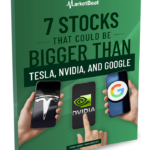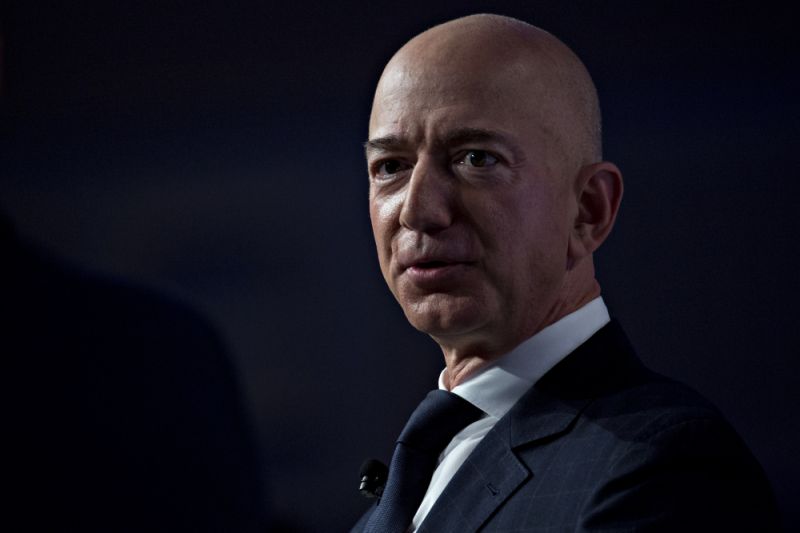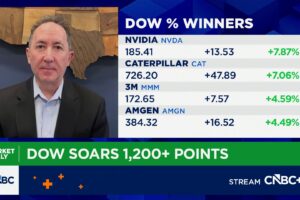

(Bloomberg) — U.S. retail giants woke up Thursday to yet another challenge from Amazon.com Inc. Chief Executive Officer Jeff Bezos, this time with a call to match his company’s recent increase to a minimum wage of $15 per hour.
“Do it! Better yet, go to $16 and throw the gauntlet back at us,” Bezos wrote in his annual shareholder letter. “It’s a kind of competition that will benefit everyone.”
The taunt is coming from a company that itself has been under a lot of pressure to improve working conditions worldwide. When Amazon pledged in October to raise pay to at least $15 an hour in the U.S., the e-commerce giant also eliminated monthly bonuses and stock awards. Amid a tight labor market, Walmart Inc. and Target Corp. also have increased wages and benefits.
“We are finally seeing the beauty of tight labor markets,” said Dave Cooper, a senior analyst at the Economic Policy Institute, a think tank. “And if they can force their competitors to pay more, that’s extra dollars that workers will spend.”
One caveat is that Amazon’s workforce primarily toils in distribution centers, which typically pay more than stores do because of the more demanding, physical nature of those roles, according to Bloomberg Intelligence analyst Charles Allen. Wholesale workers, a proxy for distribution centers, are paid about $31 an hour, 61 percent more than the retail hourly wage, according to the Bureau of Labor Statistics.
Walmart executive vice president of corporate affairs Dan Bartlett said in a tweet that the “vast majority” of the company’s warehouse workers have made more than $15 an hour “for a long time.”
Here are where some of the largest retailers stand today:
Walmart
Walmart — long criticized for suppressing wages and hours for its associates — is below the levels proposed by Bezos. The nation’s biggest private employer has fought to improve its image, however, boosting wages several times in recent years. Its current starting salary is $11 per hour, and the company has also expanded benefits like maternity and parental leave. CEO Doug McMillon has said starting wages are important but “not the whole story.” Walmart’s average hourly wage in the U.S. is $17.50 including bonuses based on store performance, and excluding health-care benefits, McMillon said in an April 4 interview with CNBC.
Target
Target is closer. The cheap-chic retailer recently announced it will move to $13 an hour in June, providing tens of thousands of workers a raise. It hasn’t specified exactly how many staffers would benefit. This follows $1-an-hour increases in recent years and brings Target closer to the goal it set in 2017 of reaching $15 an hour by the end of next year. A company spokeswoman declined to respond to Bezos’s comments.
Costco
Costco Wholesale Corp., which often leads the retail pack on pay, just boosted its starting wage to as much as $15.50 an hour. The warehouse retail chain’s success is in part due to its ability to maintain a stable, satisfied workforce. The company didn’t immediately respond to a request seeking comment. Costco Chief Financial Officer Richard Galanti said in an October conference call that the average hourly wage of its workers was $22.50.
These three companies, however, are notable exceptions when it comes to talking about wages. Most retailers, including electronics merchant Best Buy Inc., remain tight-lipped about their salary policies.
(Updates with analyst and company comments beginning in fourth paragraph.)
To contact the reporters on this story: Jonathan Roeder in Chicago at [email protected];Matthew Boyle in New York at [email protected]
To contact the editors responsible for this story: Anne Riley Moffat at [email protected], Jonathan Roeder, Cecile Daurat
<p class="canvas-atom canvas-text Mb(1.0em) Mb(0)–sm Mt(0.8em)–sm" type="text" content="For more articles like this, please visit us at bloomberg.com” data-reactid=”39″>For more articles like this, please visit us at bloomberg.com
©2019 Bloomberg L.P.











